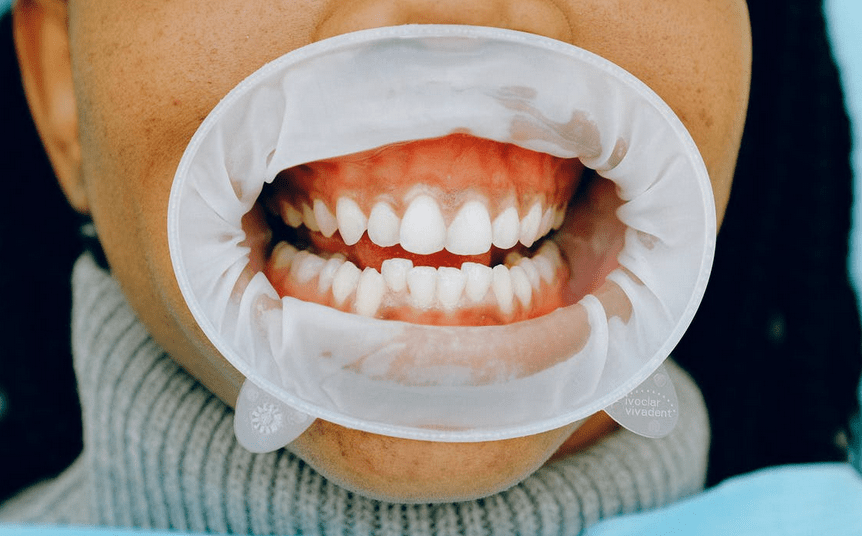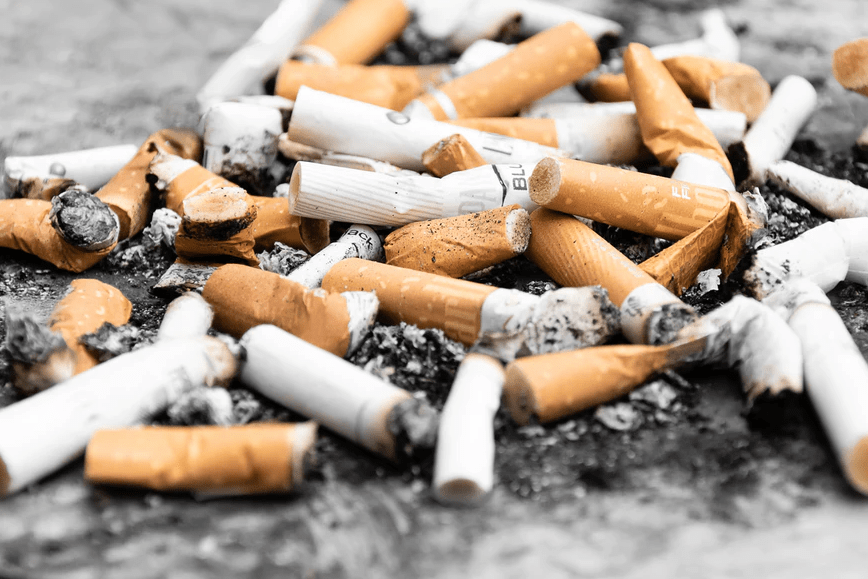No one wants to experience excruciating pain while chowing down their favorite food. That’s what happens when you start neglecting your dental health, and your gums start deteriorating. If you don’t brush your teeth or floss them properly, the tissues holding your teeth in place would be infected, thus causing gum disease. It is much bigger than a mere dental problem. Medical research indicates that gum disease can also put you at a risk for Alzheimer’s disease and can greatly affect everyday life, especially your eating patterns and dental hygiene. To not fall victim to such a lifestyle, here are some of the tips you can use to stave off gum disease.
1. Quit Smoking
To prevent yourself from harmful gum disease, the first and foremost thing you should do is quit smoking. If you smoke or use tobacco in other forms, it can place great harm on your gums and dental health. Tobacco restrains the healing of soft tissue and causes dryness, promoting an ideal thriving environment for pathogenic bacteria. It also reduces the oxygen level in the bloodstream. Smokers are likely to develop more dental plaque and their gum disease worsens faster, as compared to nonsmokers. Resultantly, they are comparatively at a higher risk of developing tooth decay and oral cancer.
2. Maintain Healthy Diet
Maintaining a healthy diet is the key to not only good oral health but also plays a great role in shaping your physical and mental health as well. A healthy diet is rich in healthy oils and fats, vegetables, nuts, legumes, fatty fish, fruits, plenty of water, and low in added sugars. It gets saliva flowing. A healthy diet is your best natural defense mechanism against gum disease. Research has also proved that a diet containing a significant amount of omega-3 fats helps in reducing the symptoms of periodontal disease. It also keeps the gums healthy and prevents them from catching any harmful oral infections.
3. Take Enough Sleep
Sleep deprivation can be one of the many reasons for gum disease or your deteriorating oral health. Lack of a decent amount of sleep can lead to loose teeth, bleeding gums, and teeth grinding. Take proper steps to manage your stress and never compromise on sleep. Chronic stress and lack of sleep have been medically proved to increase your chances of getting periodontal problems. Not getting enough sleep can cause inflammation and affect the periodontium, which is responsible for keeping your teeth in place. Resultantly, plaque biofilm starts releasing bacteria that colonize the tooth surface surrounding the gum area.
4. Practice Optimal Oral Hygiene
Food particles easily get stuck in between your teeth, get decayed in the unreachable areas, and cause severe gum infections in the future. To improve your dental health, practice optimal oral hygiene at home i.e. brush twice a day and floss before bed. Flossing might seem like an option, but it’s not the case anymore. It can help greatly in cleaning your teeth from the inside out. If you’re not comfortable with traditional floss, try using modern flossers. They come with an easy handle. Moreover, if you’re fitted with tooth implants or braces, try using an interdental brush, for a thorough cleaning process.
5. Exercise Regularly
Stay physically active and exercise regularly, to save yourself from any kind of gum disease. Exercise helps in better blood circulation. It also increases the absorption of oxygen, which in turn, keeps gum tissues tighter and healthier. Research proved that people who exercise, are less likely to fall victim to gum disease, even if they are smoking. People suffering from gum disease have an increased amount of a cytokine protein by-product i.e. C-Reactive Protein (CRP). Exercise helps in reducing the CRP levels, and thus decreases the risk of getting gum disease.
6. Visit a Dentist Regularly
Generally, you should visit your dentist and have a detailed dental check-up every 6 months to a year. By paying regular visits, it’s easier to avoid the gum disease beforehand by checking the symptoms. During the checkup, your dentist will remove plaque build-up and bacteria in your mouth. He will also advise for a further course of action, in case you’re suffering from periodontal disease. Make sure that you’ve dental insurance that you can call to pay for your service. Even if you’re only getting regular checkups and not getting any extensive dental procedure done, you’d be in good hands, when you do so with consistency.
7. Use a Mouthwash or Rinse
Make sure to invest in a high-quality mouthwash and don’t forget to rinse every day. This practice can save you from the embarrassment of bad breath and countless gum infections. If saliva and bacteria take home in your mouth, you’re more likely to get sore and infected gums. Using a decent mouthwash can help you get rid of the bacteria and keep your gum health intact. It can also reduce gingivitis, plaque and prevent cavities, and tooth decay. Rinsing your mouth on top of brushing and flossing acts as a complete package, and can keep you ahead of the game of your oral health.
8. Use Fluoride Toothpaste
Fluoride is one of the most significant minerals in dentistry due to its outstanding ability to fight back against all types of cavities and strengthen the teeth. To prevent yourself from gum disease, make sure to buy Fluoride toothpaste. It helps in protecting the enamel of teeth and keeps oral health intact. It’s also antimicrobial, which means that it can also kill the bacteria that contribute to issues like gum disease and cavities.
9. Drink Plenty of Water
There is no better mouthwash or rinse for your gums than nature’s own, water. Drink plenty of water. When you stay hydrated, your mouth will automatically produce the right amount of saliva. This will be beneficial for your gums and help you avoid any kind of gum infection or disease in the future. Do not forget about your water intake, instead fill up a bottle and keep it by your bedside or worktable. Keep drinking from it, and develop a habit, so that you can clean your mouth daily and maintain oral health.
10. Look Out for the Symptoms
Do not live in denial and research about the common signs and symptoms of both periodontal disease and gingivitis. Look out for red, swollen, or sensitive gums. If your gums bleed while eating or brushing, you must pay a visit to the dentist as soon as possible. The more severe signs of gum disease include receding gums, pockets of pus, ill-fitting bridges and dentures, and widening spaces between teeth. However, it’s advisable to not reach such severity and visit a dentist as soon as you feel any problem with the gums.
Focus on a Bright Smile – and Healthy Gums
Practicing good oral hygiene is one of the most important measures one can take, to stave off gum disease and poor dental health. Most people tend to only focus on getting a bright smile and overlook the health condition of the gums. However, healthy teeth are backed up by healthy gums. To keep your gums healthy, you must brush and floss properly, choose the Fluoride toothpaste, and rinse with a mouthwash. Additionally, you can also go for cosmetic dental procedures, for the healthy maintenance of your gums and teeth. Healthy gums assure healthy teeth, and healthy teeth will assure your bright smile.


